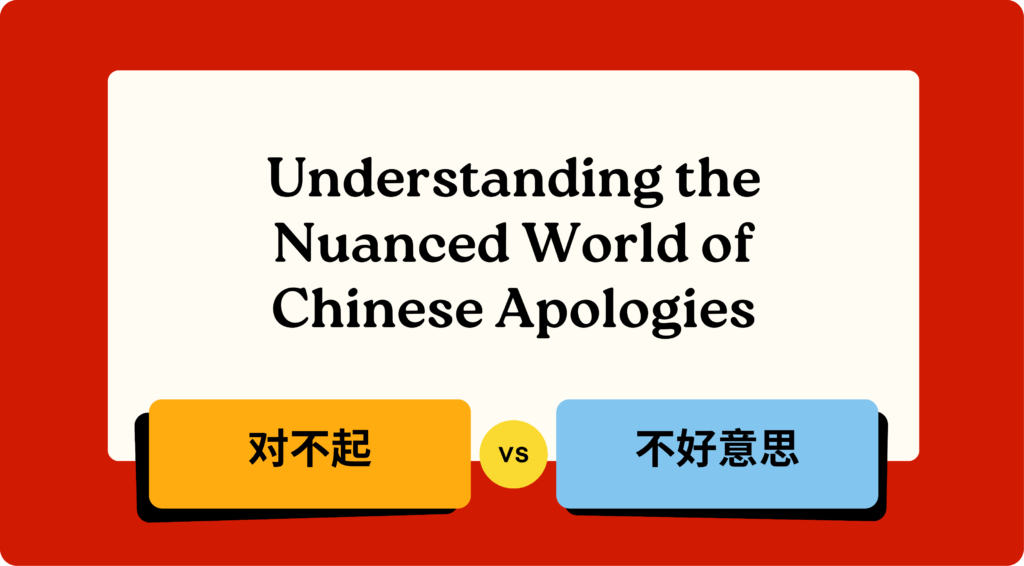In every culture, the words we use to apologize reflect our values, emotions, and social expectations. In Chinese, two common phrases—“不好意思” (bù hǎo yì si) and “对不起” (duì bù qǐ)—are often translated into the same English word: “sorry.” But in practice, these phrases carry very different meanings. Understanding how to use them properly not only improves your Chinese communication, it shows cultural awareness and emotional sensitivity.
Let’s explore the difference.
1. “对不起” – The Formal and Direct Apology
Literal meaning: “I can’t face you” or “I’ve wronged you.”
Tone: Serious, direct, and emotionally weighty.
This is the phrase you use when you’ve caused harm, made a significant mistake, or need to express real regret. It’s the equivalent of saying “I’m truly sorry” or “Please forgive me” in English.
When to use “对不起”:
- You miss an important meeting or deadline.
- You hurt someone’s feelings.
- You damage someone’s property.
- You break a serious rule.
It’s not something you say casually. Using “对不起” in situations that don’t call for it can come across as overly dramatic or insincere.
2. “不好意思” – The Gentle, Polite Expression
Literal meaning: “To feel embarrassed” or “to be shy.”
Tone: Light, friendly, and socially gracious.
“Bù hǎo yì si” isn’t an apology in the deep emotional sense—it’s more like saying “excuse me” or “sorry for the trouble.” It reflects modesty, a touch of self-consciousness, or polite acknowledgment of a small disruption.
When to use “不好意思”:
- You’re late to a casual coffee chat.
- You interrupt someone mid-conversation.
- You ask someone to help you carry something.
- You sneeze in a meeting and want to acknowledge it politely.
It’s also used when you’re expressing gratitude in a soft, humble way. For example, if someone gives you a thoughtful gift, you might say, “不好意思,麻烦你了” (“I feel bad—it was a lot of trouble for you”).
3. Choosing the Right Phrase in Context
Understanding the emotional weight of each phrase helps you navigate Chinese social dynamics with more confidence.
Use “对不起” when:
- A real mistake has been made.
- You want to express responsibility or ask for forgiveness.
- The relationship calls for formality or seriousness.
Use “不好意思” when:
- You’re making a small social misstep.
- You want to soften a request or acknowledge a mild inconvenience.
- You wish to appear polite, humble, or grateful.
In many everyday situations, especially informal ones, “不好意思” is enough—and sometimes even preferred.
